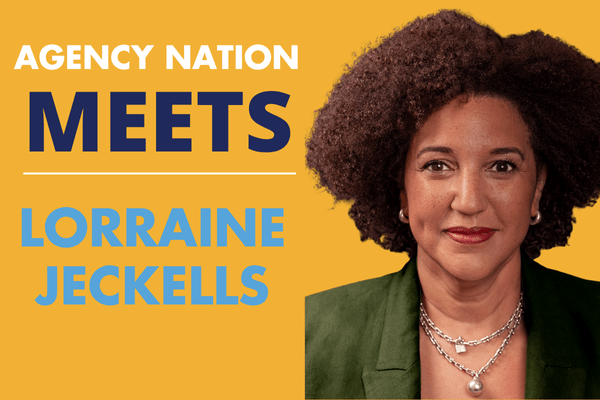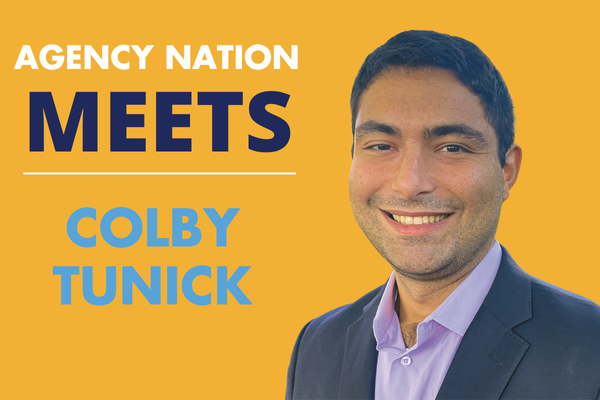5 InsurTech Trends for 2020

By: AnneMarie McPherson
“It’s the best time ever to be in insurance,” says Ron Berg, executive director of the Big “I” Agents Council for Technology (ACT).
Emerging technology and endless opportunities that 20 years ago seemed like science fiction are now transforming the day-to-day reality of independent agents in mind-boggling ways. And the new year will only bring more advancements as InsurTech continues to launch technology solutions into the hands of consumers and agents.
Here are five of the biggest InsurTech trends that agents can expect to see in 2020:
1) Data analytics will empower agents. As the new year and decade progress, InsurTech will continue to focus on maximizing the application of data.
Data-driven organizations are 23 times more likely to acquire customers, six times more likely to retain them and 19 times more likely to be profitable, according to McKinsey Global Institute. “The insurance industry is no different,” says George Mueller, vice president of sales and operations at NextGen Leads, a sales lead vendor to carriers, insurance agencies and independent agents in automotive, health and Medicare.
In the insurance industry, data analytics may be the next frontier, opening the door to an array of discoveries. “Many customer relationship management companies are developing conversion endpoints (APIs) to track performance metrics and allowing for more complex software integrations to gather additional information for machine or human learning,” Mueller says. “Customers who take advantage of these tools have a major competitive advantage over those who do not.”
Independent agents can expect to gain more power over data to inform decisions and priorities.
“Agents have been asking for this for ages,” Berg says. “Analytics, data insights using artificial intelligence and machine learning give the power of data to agents so they can understand their book of business. For example, through analytics they may spot a client who, based on habits, may be prone to leaving the agency. Knowing that ahead of time, agents can spotlight and work with that customer to keep them.”
2) User experience will continue to trend mobile. Those little bricks in our hands will continue to shape consumers’ expectations around accessibility and service, requiring technology to hone user experience to remain relevant. Key to understanding needed changes in user experience: expectations.
Data shows increasing mobile phone use year over year, with more than half of all search queries coming from mobile in 2019, according to Google. “Consumers are used to readily available, convenient and accurate information,” Mueller says. “They need to be able to research plans, compare options and pay bills via the device they choose.”
By observing that trend, NextGen has responded by focusing on “a mobile-optimized user experience in every aspect of the operation,” Mueller says. “Unfortunately, several industries overlook and underestimate the impact user experience has on conversion rate and customer satisfaction. We expect a mobile-focused push in 2020, from both the carrier and agent and broker level.”
One emerging change to fast-track and mobilize the user experience is the use of augmented reality (AR) to speed up the quoting process. AR is an interface in which a user can see the real world with an overlaid digital image. Remember the Pokemon Go phenomenon? That was AR.
“A carrier will partner with an AR mapping company so customers can take their phones and just go across their house,” Berg explains. “It maps out their belongings and does a quick assessment of the real value of their TV, computer and monitor, guitar, furniture…They can then accurately price the underwriting and actuarial and also mitigate claims. It winds up being so much faster for the companies and the agents—and customers have an amazing experience.”
3) Compliance will tighten. Although emerging technology is exciting, it also presents challenges the industry must address. One such challenge is compliance with stricter standards and protections of consumer data.
“As consumer data protection becomes more of a focus in the media, we can expect to see more states moving towards a more European GDPR-type data protection policy,” Mueller says. “California is one of the first states to adopt such a policy with the recently adopted California Consumer Privacy Act (CCPA), which will come into effect January 1, 2020.”
He adds: “With more legislation focused on protecting consumers, we expect a stronger push towards industry-standard software to verify a company’s right to contact consumers.”
4) Insurance agents will need to cut through the noise. Insurance consumers and companies have access to each other at unprecedented levels. A simple search both leads a searcher to an agency site and allows an agency to access a searcher’s attention in a personalized search experience. With everyone competing at such close quarters, it’s difficult for small businesses like independent agencies to make a name for themselves.
“Years ago, you might have had a little office down the street and you walked in and they knew your name,” Mueller says. “Knowing how to cut through the noise in an appealing and helpful way to reach people and inspire them to act is key.”
“Innovations should reinforce and influence each other to make things more automated, seamless and helpful to consumers who have a world of insurance product choices at their fingertips,” he adds.
“Most agents know that in order to compete they have to be easy to do business with and expand their reach,” Berg says. “And there’s never been a time where they can expand their reach more readily than what’s available now: ranking highly in search results, being on mobile, having a great website and targeting niche products, such as food trucks or microbreweries.”
5) Independent agents will be more valuable than ever. Robots won’t be replacing independent agents just yet, provided independent agents continue to adapt.
“There’s definitely a lot of value that agents provide,” Mueller says. “Over time, a lot of their role will be filled with embracing technology. They can continue to best help consumers by being on the cutting edge of technology.”
“It’s always been about relationships, the trusted advisor role,” Berg says. “It was a relationship business when it was door-to-door sales. It moved to offices where people come in, and now it’s however and whenever people want to do business. As independent agents adapt that customer experience, they’re only magnifying their value.”
How do independent agents adopt the new model?
“Within your network, look at other agents who are doing things well,” Berg says. “Understand your core groups of customers, what they want and how to provide that. Start today, even when it’s small steps. That’s what ACT does. For customer experience, cyber, emerging trends, we have high to mid-level detail on what it is, how to get started, and free resources to allow them to strategically look at where they need to go, take the first steps and tactically create a plan.”
View all of these free resources and more on ACT’s homepage.
When it comes to figuring out what customers need, one crucial aspect is understanding generational differences, Mueller points out. “Boomers might be okay with getting something in the mail and printing things out. But if you are working with younger generations, specifically Gen Z, who are entering the workforce and starting to buy insurance products, then count on all transactions being online or mobile. Agents need to evolve to meet customer needs through mobile, electronic signatures and other tools.”
Looking at the future, Berg is optimistic about the independent agent community’s ability to keep up with the times.
“There are still hurdles,” he says. “But our partners are accelerating what they’re doing to adopt technology, and a lot of the agencies I see are starting to accelerate too. 2020 is when we’re going to see a lot of that.”
AnneMarie McPherson is IA assistant editor.










